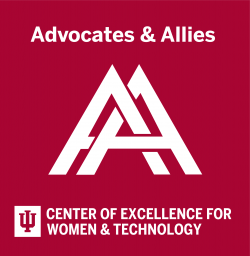As we enter Women’s History Month, we return to our regular conversation We discussed previously the Deferred Action on Childhood Arrivals (DACA) program (including the Trump administration’s rescinding of the program and recent court decisions) and our duty to make higher education a safe and supportive place for undocumented people. This week, we revisit our discussion of racist nativism and documentation status, explore undocumented people’s experiences, and explore ways we can support undocumented/DACAmented people.

Reflect: Undocumented and DACAmented Stigma
Residency/citizenship status conversations around undocumented people are steeped in racist nativism. Nativism is a mixture of racism, xenophobia, and nationalism that vilifies immigrants and elevates one culture over another. Nativism takes many forms, including narratives of “invasion,” criminality, and other vignettes that make the “native” culture seem endangered by people from another country - particularly countries that are not demographically similar regarding race.1 Nativism is a bigoted form of irony considering the violent removal of indigenous people before and during the U.S.’s founding. How does the language of “illegal” vs. “undocumented” shape our empathetic responses? How do our stereotypes about undocumented status (i.e., only Latinx people) limit our ability to support other undocumented people (e.g., Black people, Asian people, etc.)?
Learn: Being Undocumented/DACAmented in Higher Education
Undocumented people often navigate numerous, layered barriers in higher education. Universities frequently do not provide adequate resources on application processes and financial aid policies for undocumented people, adding to the vague ways that universities handle residency status and contributing to hesitation for undocumented people.2,3,4 Racist, nativist microaggressions about deservingness and capability, including from university faculty and staff, commonly create a negative campus environment.5 These microaggressions take on an additional layer of hostility for undocumented women, who receive threats of sexual violence and other forms of sexism,6 and who already often experience an immense amount of trauma in migration.7 Because of this prevailing nativist racism, disclosure of undocumented status can be an emotionally taxing, frightening, and harmful process – often leading to a certain amount of avoidance and silence around this important aspect of life.8 However, many undocumented people also use their status to support their peers and dispel stigma about undocumented status,9 as well as a feature of resistance in developing an academic identity.10
Change:
- Discussion questions: What kinds of barriers – socially and structurally – for undocumented people do we perpetuate in our daily lives? How can we better incorporate undocumented/DACAmented voices? What kinds of new campus spaces/programs can we create that celebrate their stories, needs, and knowledge?
- Listen to their stories: Undocumented people are misunderstood and often erased in our perceptions of who is a part of a university campus; of the stories we do hear, they often focus only on deficit perspectives, leaving out the wealth of knowledge in this community.11,12 An important step to pushing back on negative, stereotypical perceptions is to seek out their stories, in their own words.13 This can be facilitated by informally seeking out resources or by developing facilitated conversations. Furthermore, we should consider and honor how dimensions of gender14 and other identities create nuance, such as approaches to personal motivations for education.15
- Advocate for more inclusive programs: There are many promising programs that serve the undocumented community in higher education, such undocumented student resource centers16 and tuition reduction programs.17 We can also make programs more welcoming by not requiring specific information to participate (like social security numbers) that could reveal status and offering multilingual options for services (such as counseling centers) that would be helpful to undocumented people.18 Regardless, faculty and staff should seek out training to develop their knowledge of policy to not harm the students they may be serving.19,20 Community connections can and should be created so that undocumented students get the opportunity to pursue internships and other vital experiences which bolster other students’ experiences.21 Lastly, creating spaces where peers, staff, and faculty can offer social and institutional support can foster important academic, social, and emotional outcomes – particularly when we consider the intersections of identity.22,23
Weekly Resource Recommendations
- Book:We are Not Dreamers: Undocumented Scholars Theorize Undocumented Life in the United States – This edited volume includes perspectives challenging dominant narratives and providing nuance about the life of undocumented people in the U.S.
- Video: DACA, What Next? – Javier Juarez discusses his journey as a DACA recipient and what the Trump administration’s decision means for the thousands who are like him.
- Article: Undocumented Student Allies and Transformative Resistance - Chen and Rhoads explore how campus allies helped create inclusion for undocumented people.
- Podcast: Dreamers and Immigration Policy: Past, Present, Future (dotEDU) – Fansmith, Spreitzer, and Gunja discuss immigration policy and its effect on higher education.
Get these tips delivered to your mailbox!
We send these tips every Tuesday during the fall & spring semesters to our mailing list. If you are not already on our mailing list you can request to be added by completing the form below.

